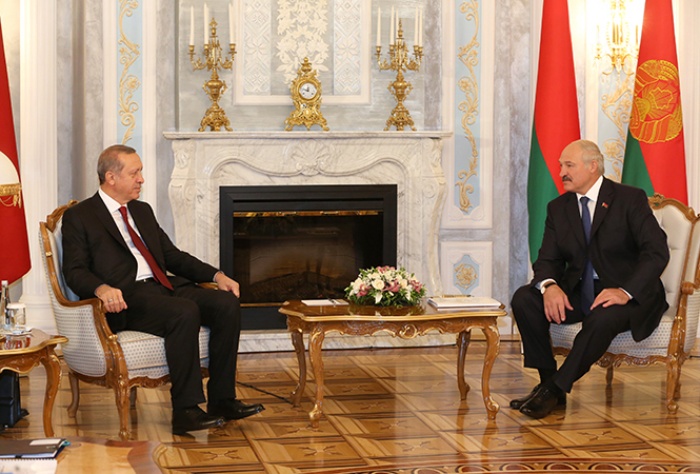Turkey pushed NATO allies into watering down an official reaction to the forced landing by Belarus of a passenger plane and the detention of a dissident journalist on Sunday, Reuters reported, citing diplomatic sources.
Ankara insisted that any mention of support for more Western sanctions on Belarus and calls for the release of political prisoners there would be left out of the text, according to two diplomats who spoke to Reuters. Language threatening a suspension of NATO’s cooperation with Belarus was also removed, they said.
NATO Secretary-General Jens Stoltenberg had called the incident a “state hijacking” and “outrageous.”
Turkey’s insistence on a watered-down text upset a number of allies, particularly Poland, Lithuania and Latvia, which had pushed for tougher wording, the diplomats said.
“Many allies were very frustrated with Turkey. It was important for NATO to respond, and it is not clear why Ankara should want to defend [Belarusian President Alexander] Lukashenko,” said a European diplomat present at the discussion.
Diplomats told Reuters Ankara might be trying to preserve ties with Moscow, Belarus’ closest ally, and maintain economic relations with Belarus via Turkish Airlines, which has daily flights to Minsk. Another possibility could be Turkey’s keenness to welcome Russian tourists this summer after the COVID-19 pandemic.
Yet, the move might have to do more with the Turkish government’s own widespread practice of targeting dissidents abroad.
According to a report by the Stockholm Center for Freedom, Turkey has itself been accused of engaging in the systematic practice of state-sponsored extraterritorial abductions and forcible returns, with at least 100 Turkish nationals from multiple states including Afghanistan, Albania, Azerbaijan, Afghanistan, Cambodia, Gabon, Kosovo, Kazakhstan, Lebanon and Pakistan removed to Turkey.
According to a recent report by Freedom House on global transnational repression published in February, Turkey has become number one among countries that have conducted renditions from host states since 2014.
“Ankara’s campaign has primarily targeted people affiliated with the movement of religious leader Fethullah Gülen, which the government blames for the coup attempt,” said the report, adding that “[r]ecently, however, the effort [of the Turkish government] has expanded, applying the same tactics to Kurdish and leftist individuals.”
Most recently the wife of a teacher who is a nephew of US-based Muslim preacher Fethullah Gülen has claimed that her husband was abducted by operatives of the Turkish government in Kenya due to his relationship to Gülen.
Turkish President Recep Tayyip Erdoğan has been targeting followers of the Gülen movement, a faith-based group inspired by Turkish cleric Fethullah Gülen, since the corruption investigations of December 17-25, 2013, which implicated then-Prime Minister Erdoğan, his family members and his inner circle.
Dismissing the investigations as a Gülenist coup and conspiracy against his government, Erdoğan designated the movement as a terrorist organization and began to target its members. He intensified the crackdown on the movement following a coup attempt on July 15, 2016 that he accused Gülen of masterminding. Gülen and the movement strongly deny involvement in the abortive putsch or any terrorist activity.

